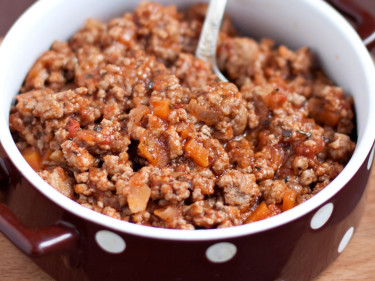Dairy has a become a highly controversial topic regarding health and nutrition recently. There’s lots of conflicting ideas and opinions going around, so understandable it is hard to know what’s the truth and what’s not. Lucky for you, our experts have done the research and debunked the most common dairy myths.
MYTH #1: Humans are not meant to drink cow’s milk
You’ve probably heard that milk is intended solely for calves, and humans have not evolved to, and should not drink milk. Whilst milk is intended for calves, most humans are able to digest milk and other dairy products with no adverse gastrointestinal effects. Humans are also very adaptable and have actually been consuming milk for thousands of years. Milk is also great because it is an excellent source of protein and calcium, and can be easily adapted into many recipes.
MYTH #2: You can't have any dairy foods if you’re lactose intolerant
Luckily for you, if you are lactose intolerant, there may still be dairy foods you can eat without the uncomfortable symptoms afterwards! Some dairy products, such as hard cheeses like parmesan, naturally have a low lactose content and often people with lactose intolerance can still consume these. Everyone also has a different threshold of tolerance, so there may be different dairy products and amounts YOU are able to tolerate. There are also dairy products with added lactase - the enzyme which digests lactose and that lactose intolerant people don’t have. Added lactase in a dairy product will likely make it much easier for you to digest and relieve you of any symptoms you suffer.
MYTH #3: Dairy is bad for your gut
Gut health is another buzz word online. There is a lot of information suggesting that eliminating dairy is necessary to achieve good gut health. As far as research suggests, there is no evidence that dairy is bad for our guts (unless you are lactose intolerant). In actual fact, fermented dairy products with good bacteria like yoghurt and kefir are great for our gut health. Check out our article for more information on what to eat to keep your gut healthy.
MYTH #4: Low fat / skim milk has added sugar
In Australia, there is no sugar added to plain cows milk. Low fat milk will typically contain more sugar per 100mL than full cream, but this is because when the fat is skimmed off the top the remaining milk is slightly more concentrated because the overall volume has been decreased. The sugar in milk is also naturally occurring (lactose) rather than added sugars or artificial sweeteners. Low fat milk is still full of important nutrients like calcium and protein.
MYTH #5: You have to stop eating dairy foods to lose weight
There is a common misconception that dairy foods contribute to weight gain. Dairy products help to meet nutrient needs (i.e., calcium, potassium, phosphorous, magnesium, vitamin A, vitamin B12 and zinc) and there are many low fat dairy foods available, such as skim milk, low fat yogurt and reduced fat cheese.
A review of the evidence found that recommended levels of dairy products (> 3 serves per day) may be used during weight maintenance without contributing to weight gain compared to diets low in dairy products.
The bottom line
Overall, there is plenty of false information surrounding dairy, however, for most people dairy is perfectly healthy and can be included as part of a balanced diet. If you choose to eliminate dairy for ethical or environmental reasons that is totally fine - just be sure to choose fortified milks to ensure you are not missing out on any key nutrients!












